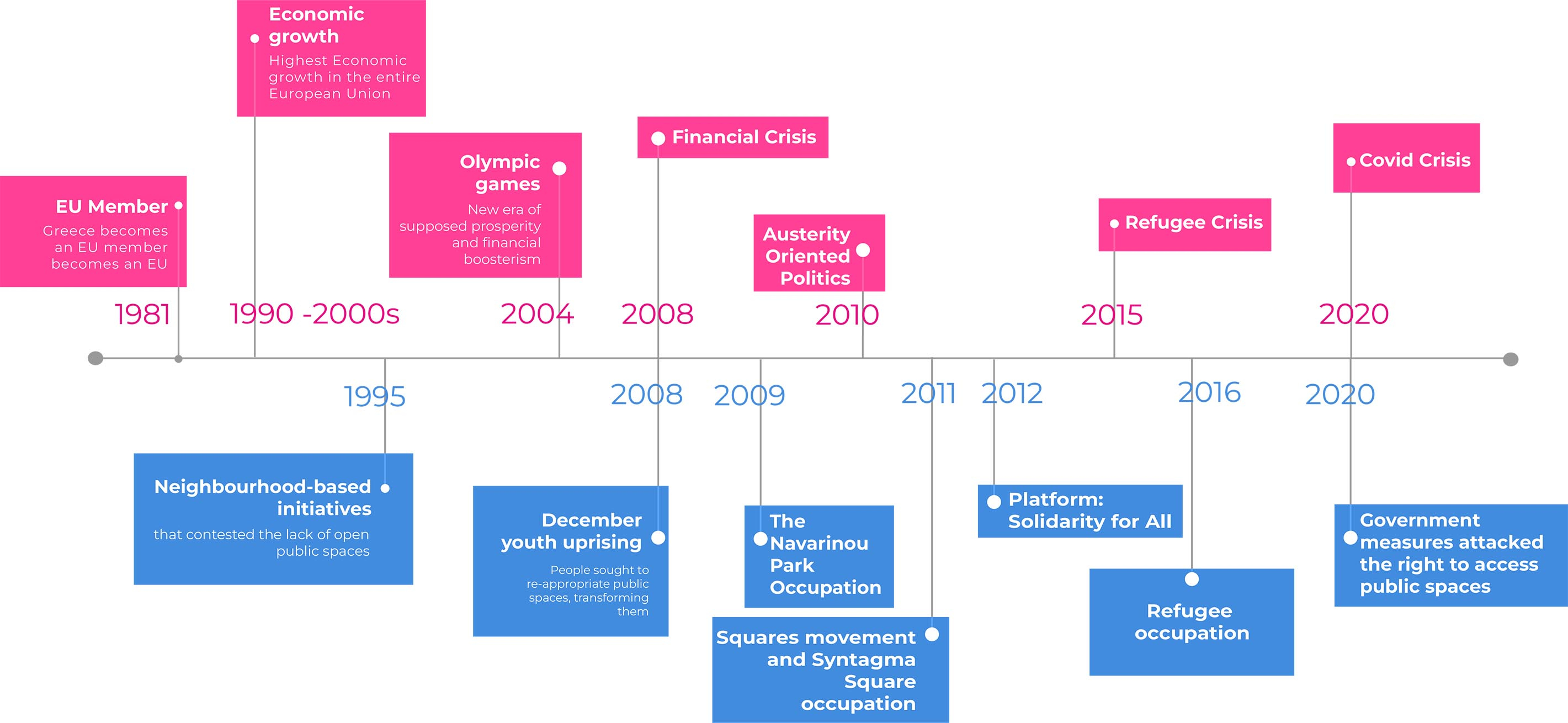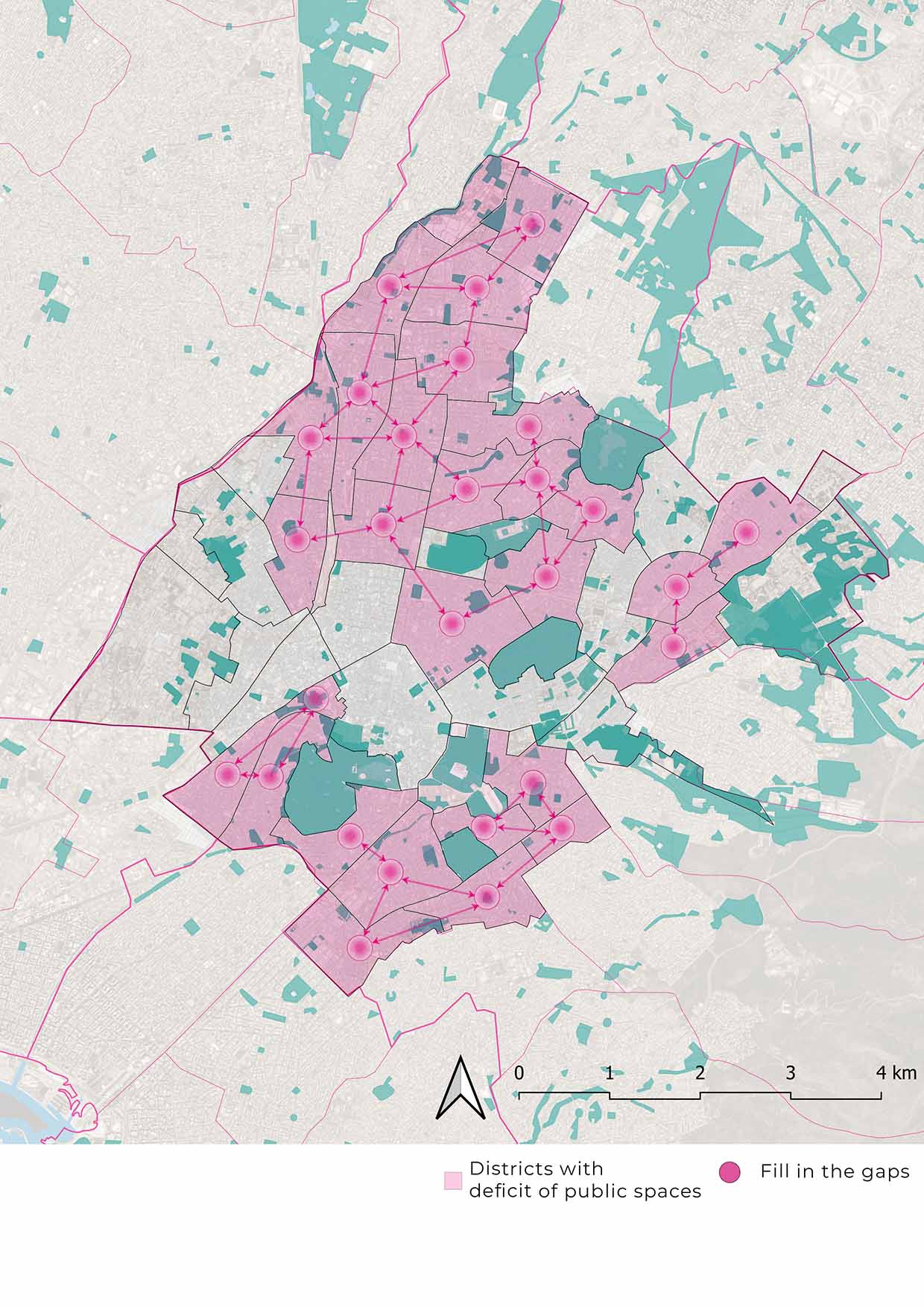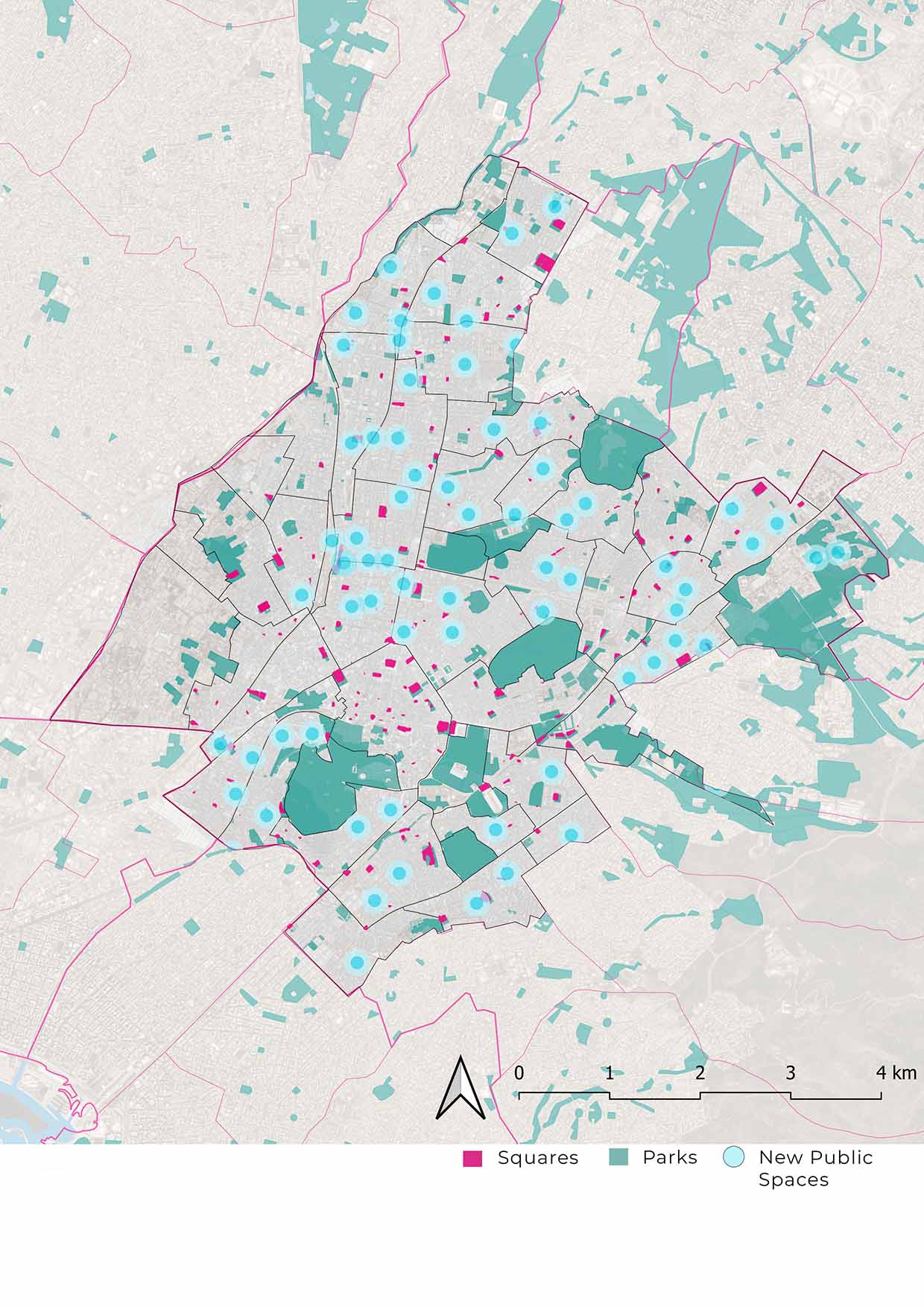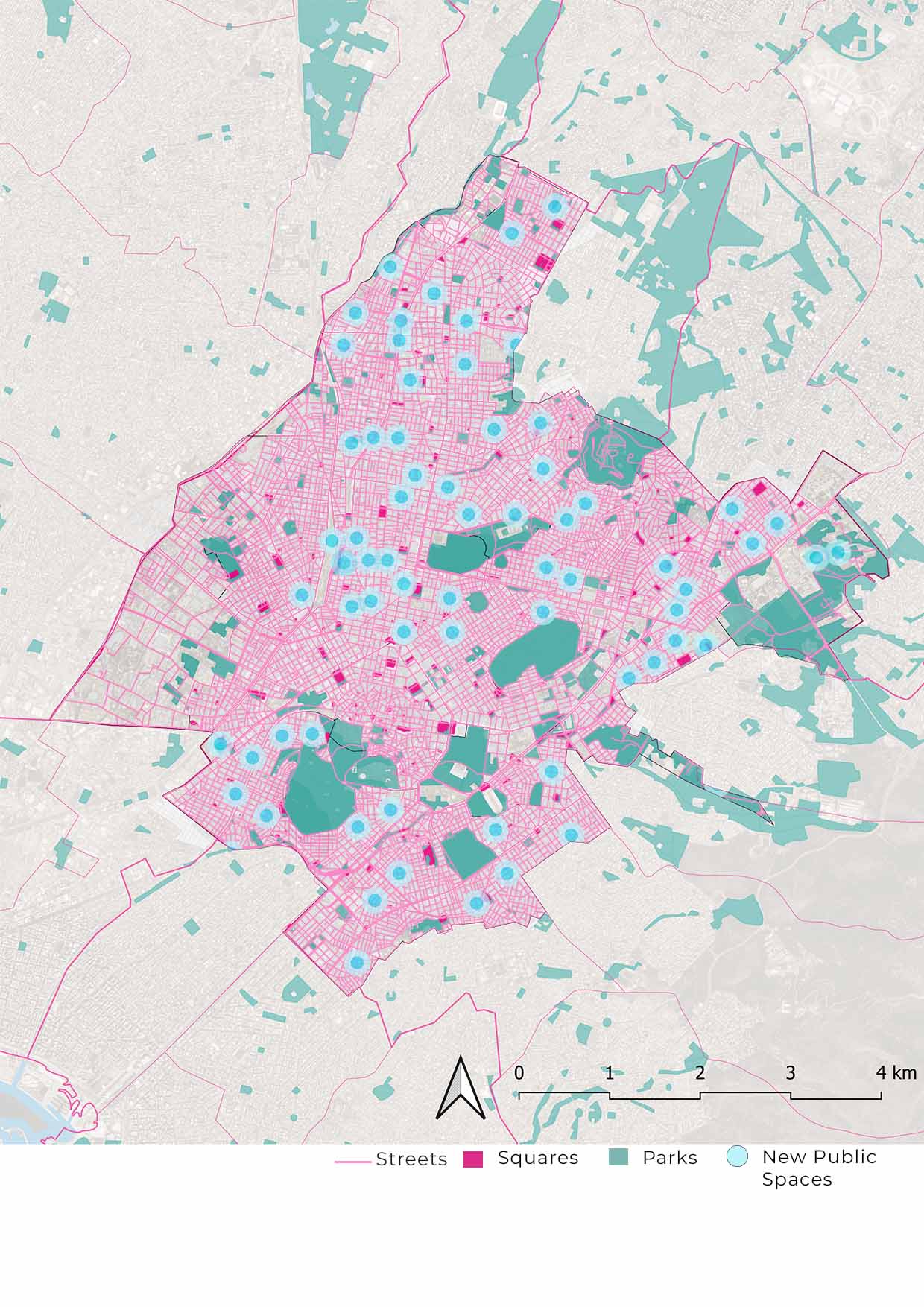This project aims to address the spatial injustices that have occurred in Athens' public spaces as a result of neoliberal urbanism. The focus is on empowering communities to establish just public spaces. To achieve this goal, a value-based tool is proposed to analyze and suggest strategies. Additionally, historical analysis, political framework assessment, and local-scale studies are conducted to reveal long-standing disparities. Based on the findings, the recommended strategies are The "Just" Distribution, Coproducing the Commons, and Public Spaces Network. Successfully implementing these strategies requires a commitment to equity from all stakeholders, as well as the involvement of marginalized groups to create a more inclusive city.
Sara Martinez Zena


Project description
Athens, public space and justice: A timeline of crises
The history of injustices in public spaces in Athens spans several significant crises. In the 1980s, Greece's entry into the European Union brought economic growth, but neoliberal urban development led to unchecked expansion and weak city planning. The Olympic Games in 2004 prompted massive construction projects, benefiting sectors like banking and construction. The 2008 financial crisis and subsequent police shooting of a teenager ignited widespread protests, revealing shared grievances and justice concerns. The December 2008 uprising led to the emergence of local initiatives and reclaiming of public spaces. Austerity measures from 2010 worsened social conditions and triggered protests, culminating in the occupation of Syntagma Square in 2011, showcasing participatory democracy efforts. The 2015 refugee crisis highlighted exclusionary policies, with solidarity initiatives and refugees claiming their right to public spaces. COVID-19 restrictions in 2020 further limited public space access, exposing inequalities but also inspiring solidarity movements.

Proposal
The proposed strategies aim to prioritize just access and provision of public spaces, which foster community participation and are based on a holistic understanding of the city. All citizens, regardless of their ethnicity, gender, or political orientation, should be able to access safe, welcoming, and well-maintained public spaces that cater to their diverse needs and interests. The main idea is for the city to recognize the important role of public spaces in enabling civic demonstrations, recreation, and social integration. It also encourages community involvement in designing and creating public spaces while empowering marginalized groups by facilitating their practices, thereby challenging rather than reproducing inequalities.

The ‘‘Just’’ Distribution
Public spaces should be evenly distributed at the citywide scale as the most fundamental expression of spatial justice (Soja, 2010). This means considering not only the city’s physical aspect but also its social structure, therefore:
• Develop a public space gap analysis
• Understanding demographics
• Examine current budget
• Define a participatory strategy
• Elaborate a strategy to fill the identified gaps

Coproducing the Commons
To address gaps in the provision of public spaces, the strategy prioritises areas in greatest need by creating public spaces as nodes for social encounters, and empowering existing communities to produce and manage their public spaces, as resources collectively managed and sustained:
• Locate available sites and existing opportunity spaces
• Create active borders
• Put budget power in community

Public Spaces Network
The strategy proposes to build a network connecting the new and existing public nodes. Just public spaces should be designed as a continuous and porous network accessible to all (Stavrides, 2010). Therefore, public spaces should be strategically located and interconnected to allow free movement between them:
• Expanding public borders
• Create a network of public spaces
• Borders among neighbourhoods should be porous








